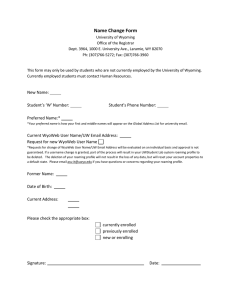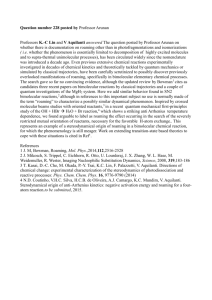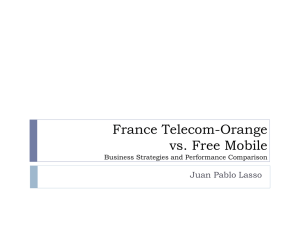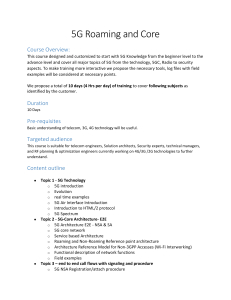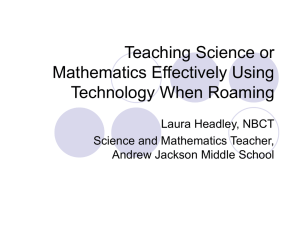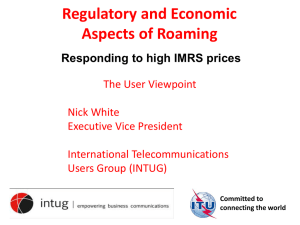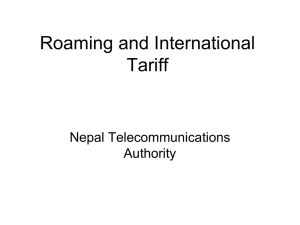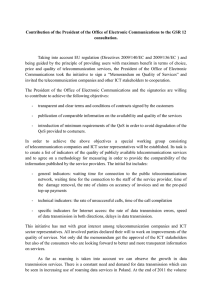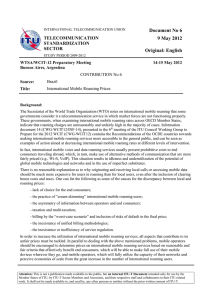"High Dimensional Dynamical Systems: Theory and Computational
advertisement
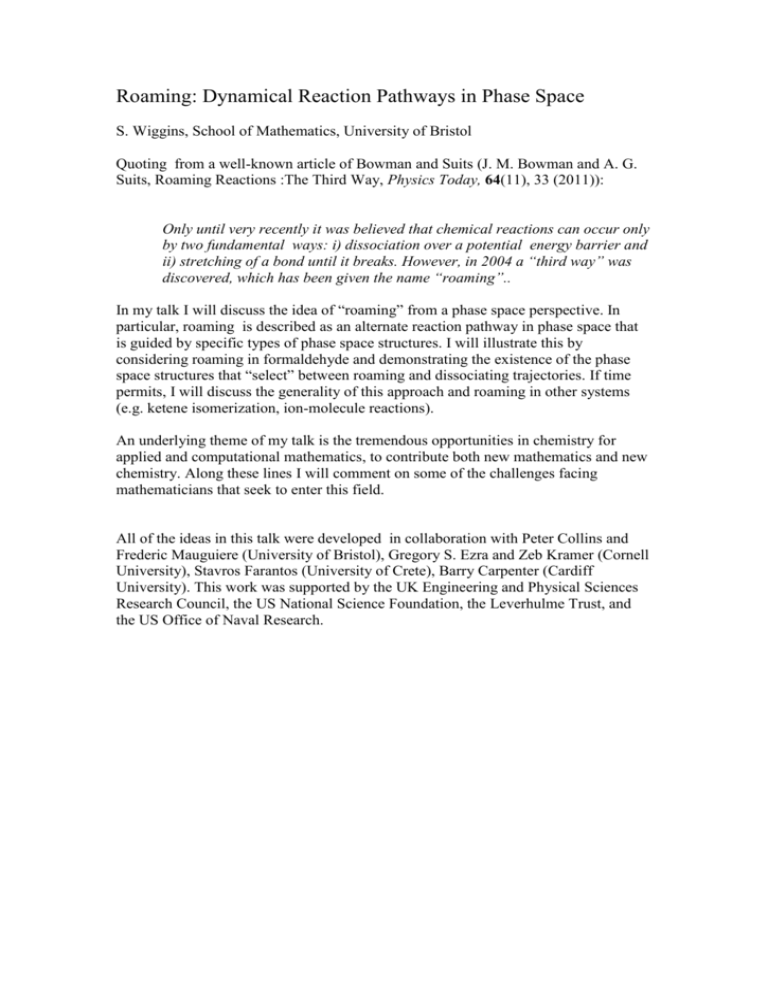
Roaming: Dynamical Reaction Pathways in Phase Space S. Wiggins, School of Mathematics, University of Bristol Quoting from a well-known article of Bowman and Suits (J. M. Bowman and A. G. Suits, Roaming Reactions :The Third Way, Physics Today, 64(11), 33 (2011)): Only until very recently it was believed that chemical reactions can occur only by two fundamental ways: i) dissociation over a potential energy barrier and ii) stretching of a bond until it breaks. However, in 2004 a “third way” was discovered, which has been given the name “roaming”.. In my talk I will discuss the idea of “roaming” from a phase space perspective. In particular, roaming is described as an alternate reaction pathway in phase space that is guided by specific types of phase space structures. I will illustrate this by considering roaming in formaldehyde and demonstrating the existence of the phase space structures that “select” between roaming and dissociating trajectories. If time permits, I will discuss the generality of this approach and roaming in other systems (e.g. ketene isomerization, ion-molecule reactions). An underlying theme of my talk is the tremendous opportunities in chemistry for applied and computational mathematics, to contribute both new mathematics and new chemistry. Along these lines I will comment on some of the challenges facing mathematicians that seek to enter this field. All of the ideas in this talk were developed in collaboration with Peter Collins and Frederic Mauguiere (University of Bristol), Gregory S. Ezra and Zeb Kramer (Cornell University), Stavros Farantos (University of Crete), Barry Carpenter (Cardiff University). This work was supported by the UK Engineering and Physical Sciences Research Council, the US National Science Foundation, the Leverhulme Trust, and the US Office of Naval Research.
